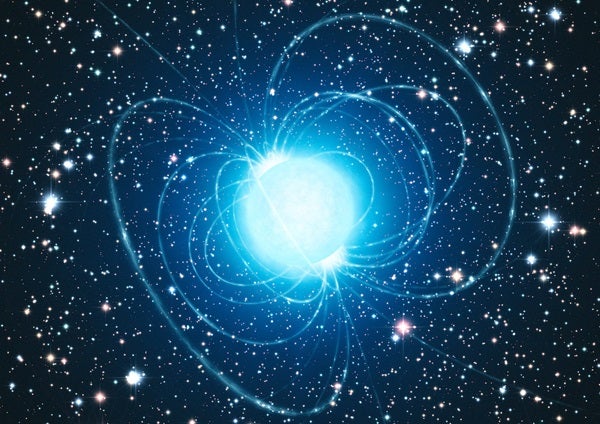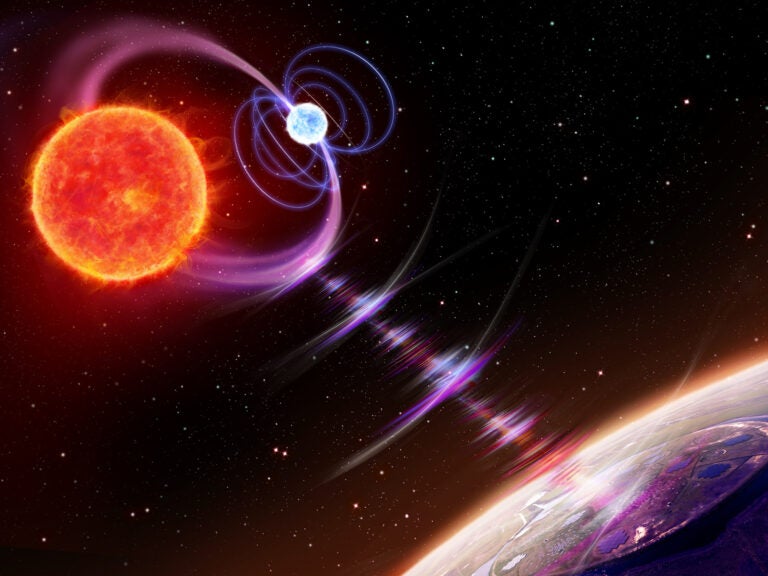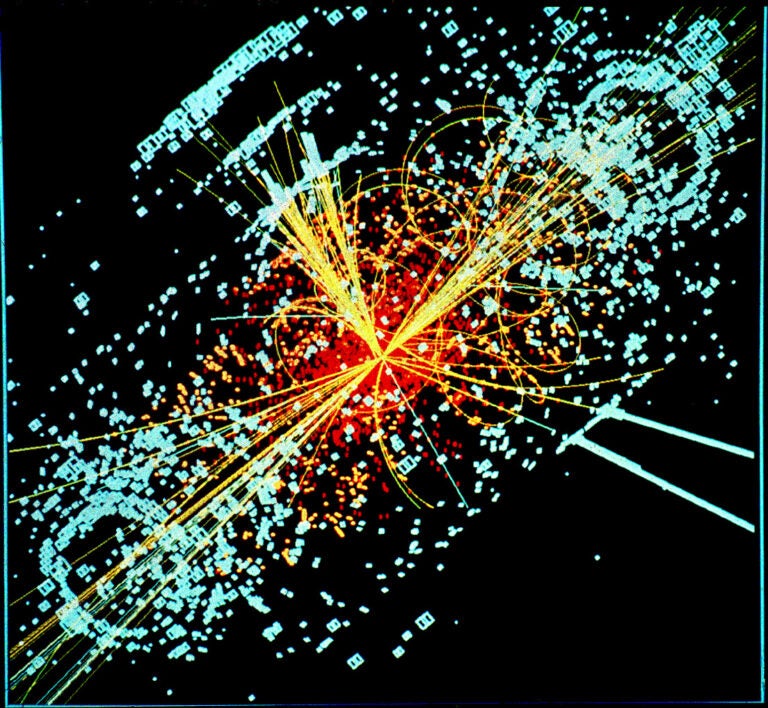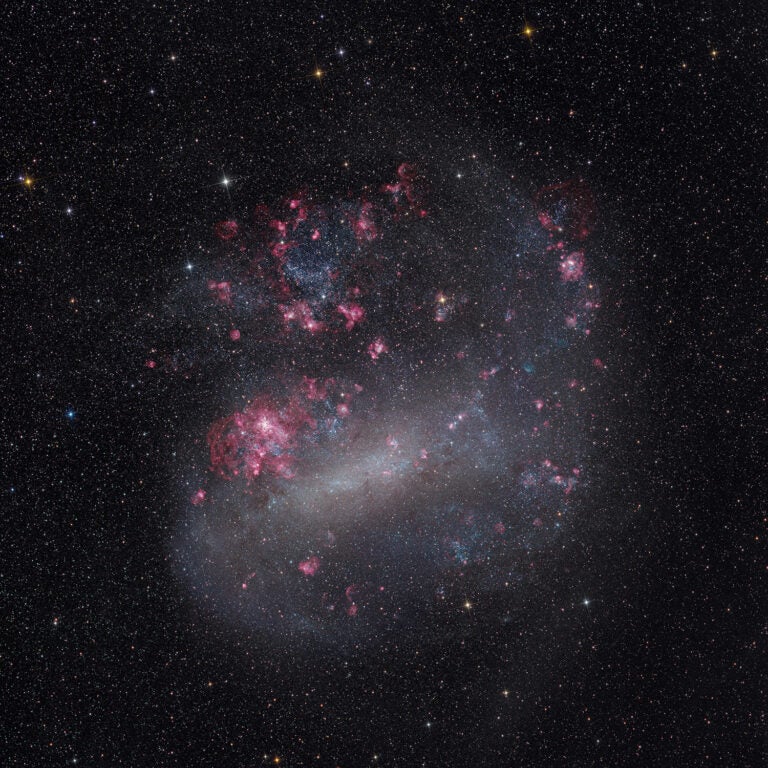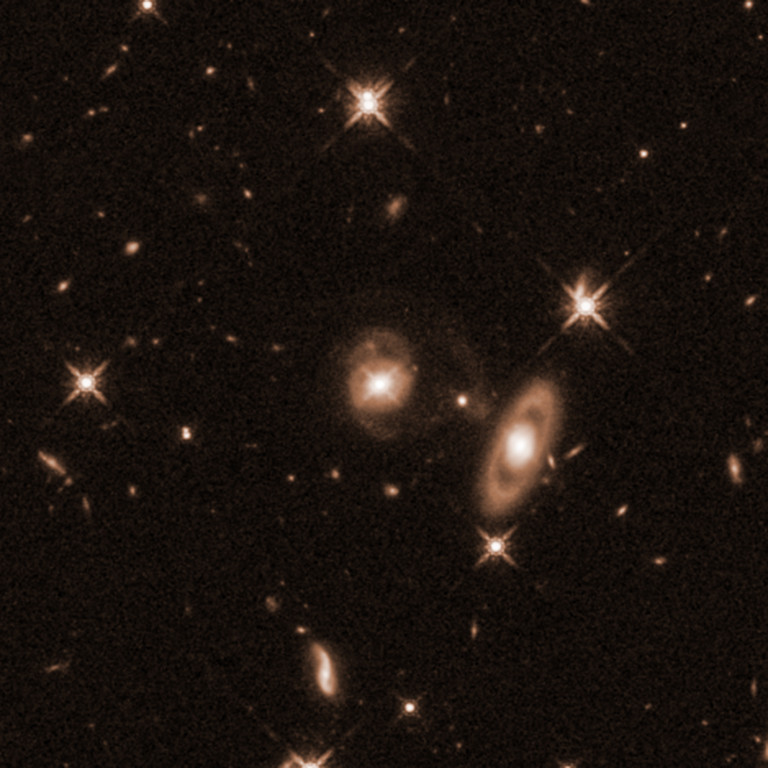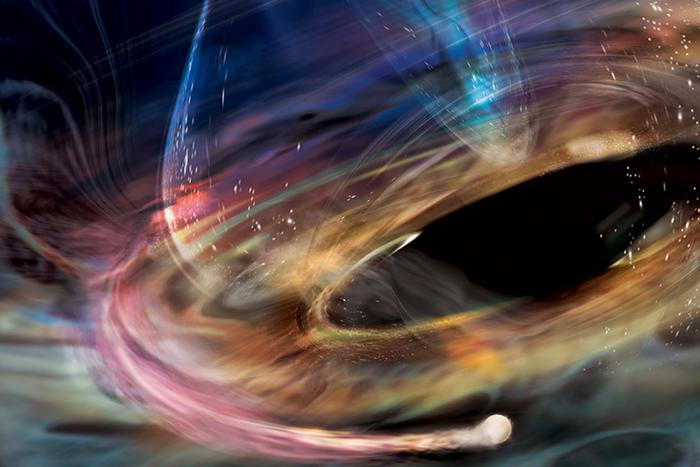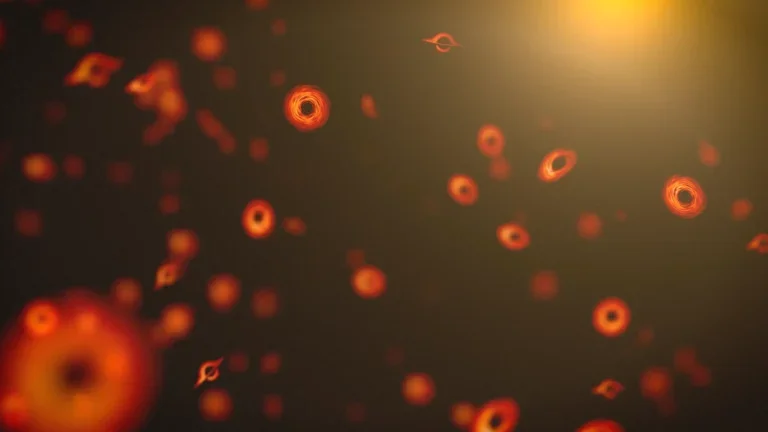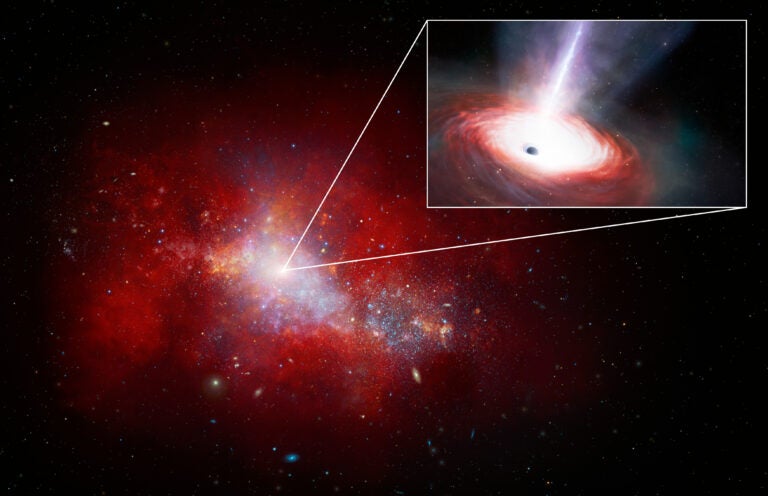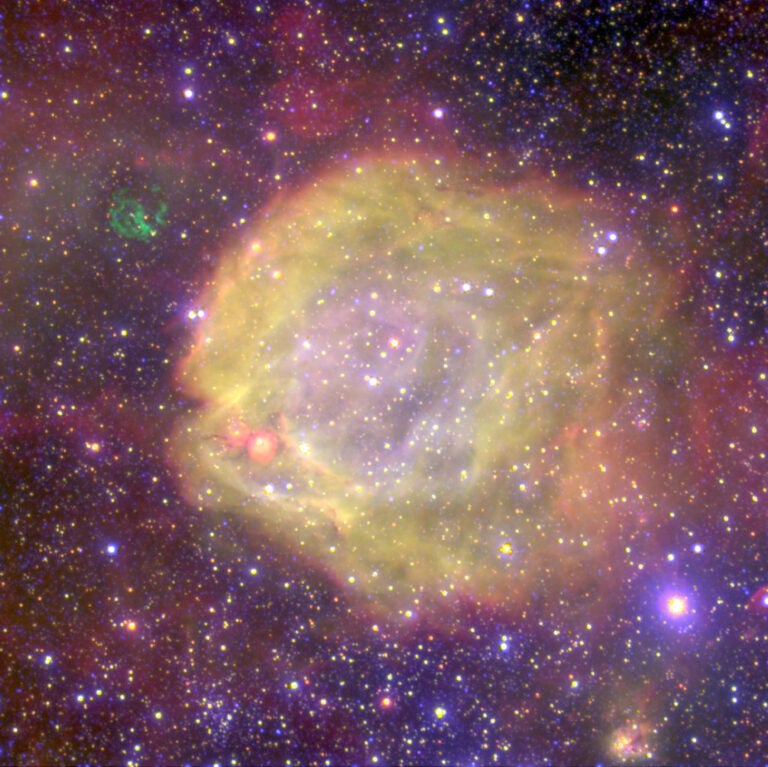I’ve read that the strength of a neutron star’s magnetic field is greater than any other found in the universe. Wouldn’t a supermassive black hole have a stronger one?
The answer to this question is quite complicated. There is a so-called no-hair theorem, which basically states that only three observable parameters can be determined for each black hole: its mass, electric charge, and rotation. The hair here is a metaphor for all other possible parameters, including magnetic fields, which disappear inside the black hole and become inaccessible to scientists. So, a black hole by itself does not have any measurable magnetic field.
However, any matter that accretes onto a black hole could be magnetized. In this case, the magnetic field will become stronger as the matter approaches the black hole and is compressed. So, magnetic fields do exist around supermassive black holes, but their source is the accretion disk, not the black hole itself.
For example, when the Event Horizon Telescope collaboration imaged the supermassive black hole in M87, they observed radio waves that were polarized by the magnetic field in the surrounding accretion disk. The team estimated the magnetic field strength to be between two to 50 times stronger than Earth’s magnetic field. But that is a tiny magnetic field compared with the magnetic fields around pulsars and magnetars. In particular, magnetars retain the strongest magnetic fields in the universe, at a thousand trillion times stronger than Earth’s field.

